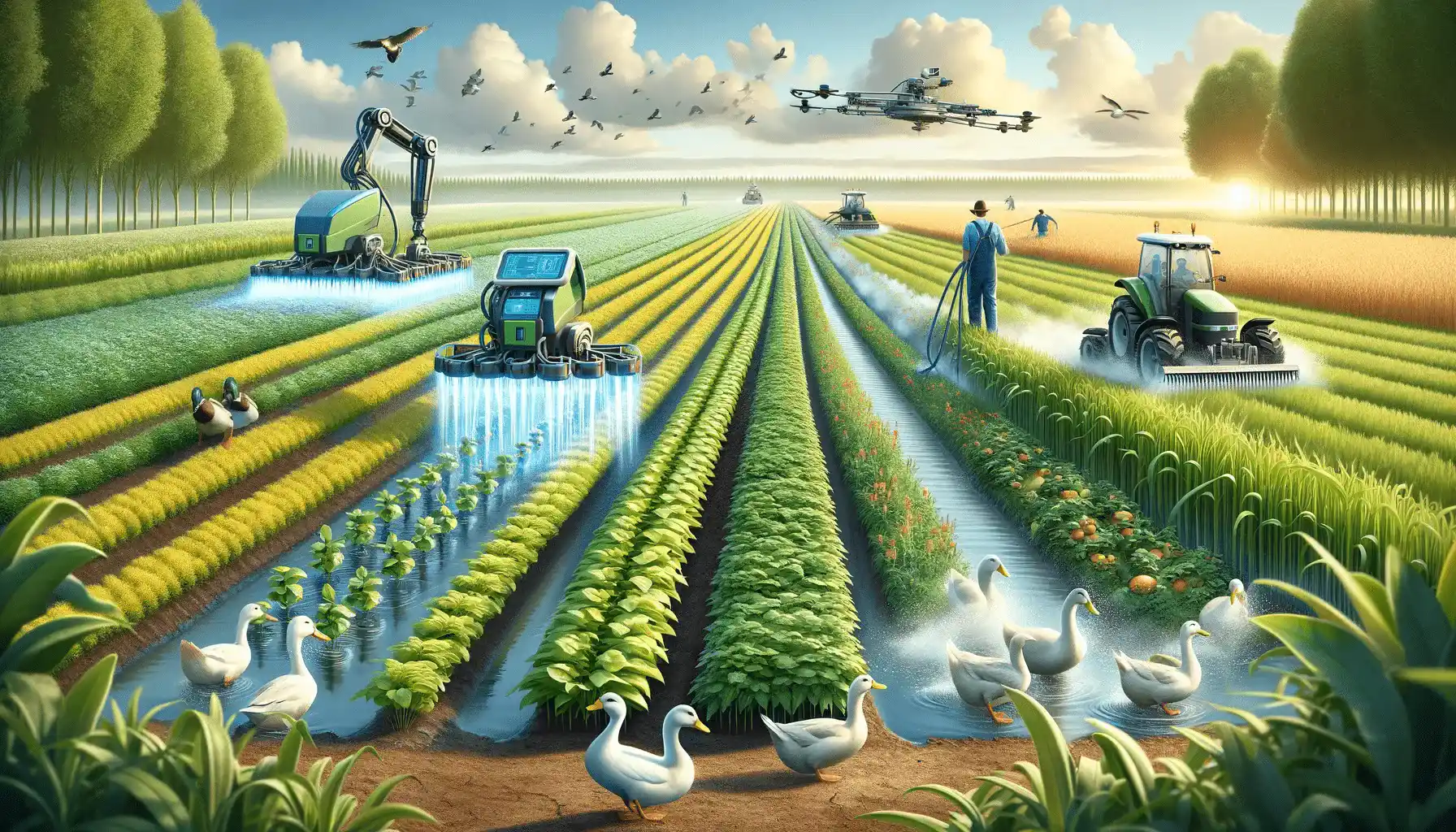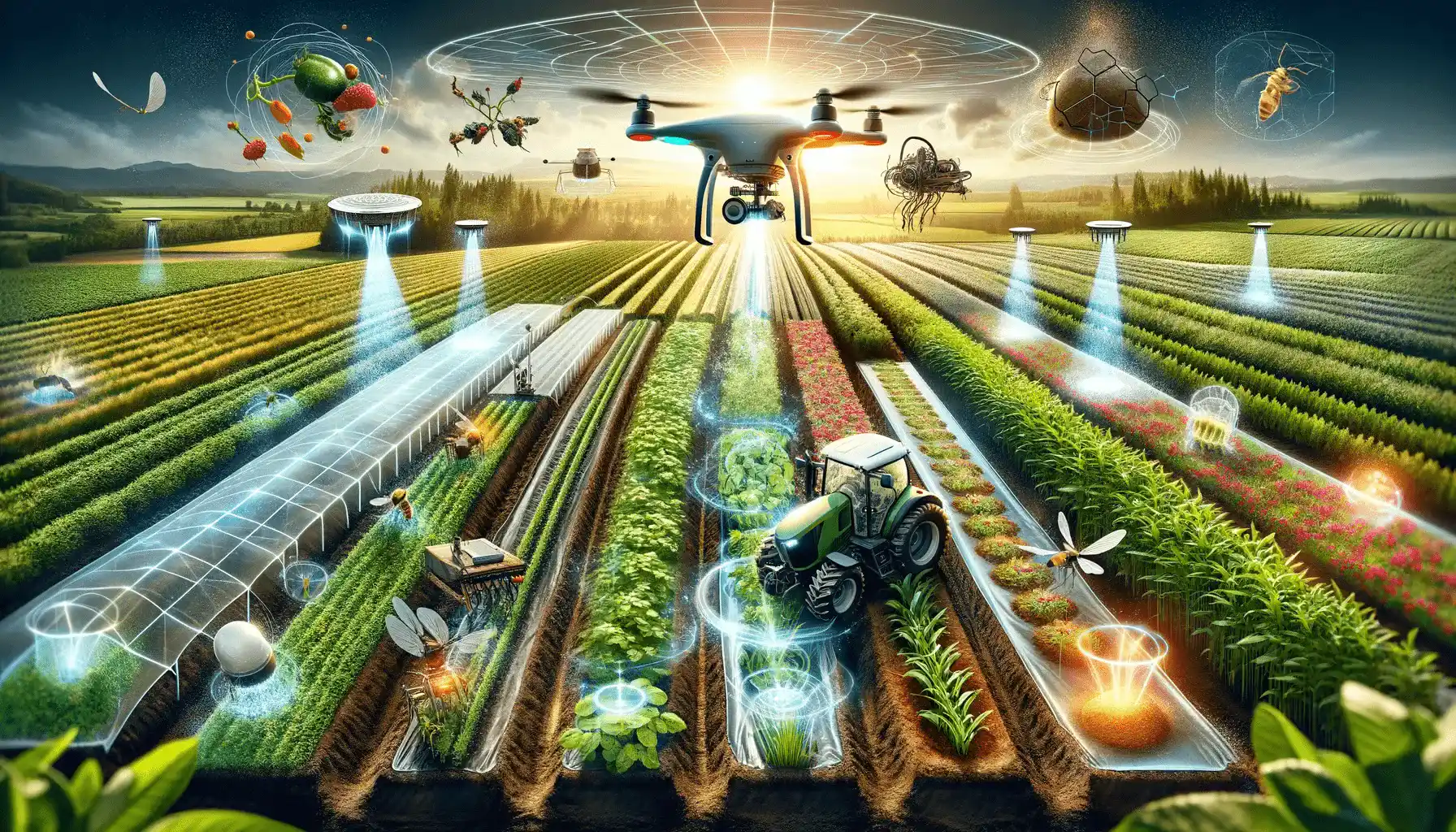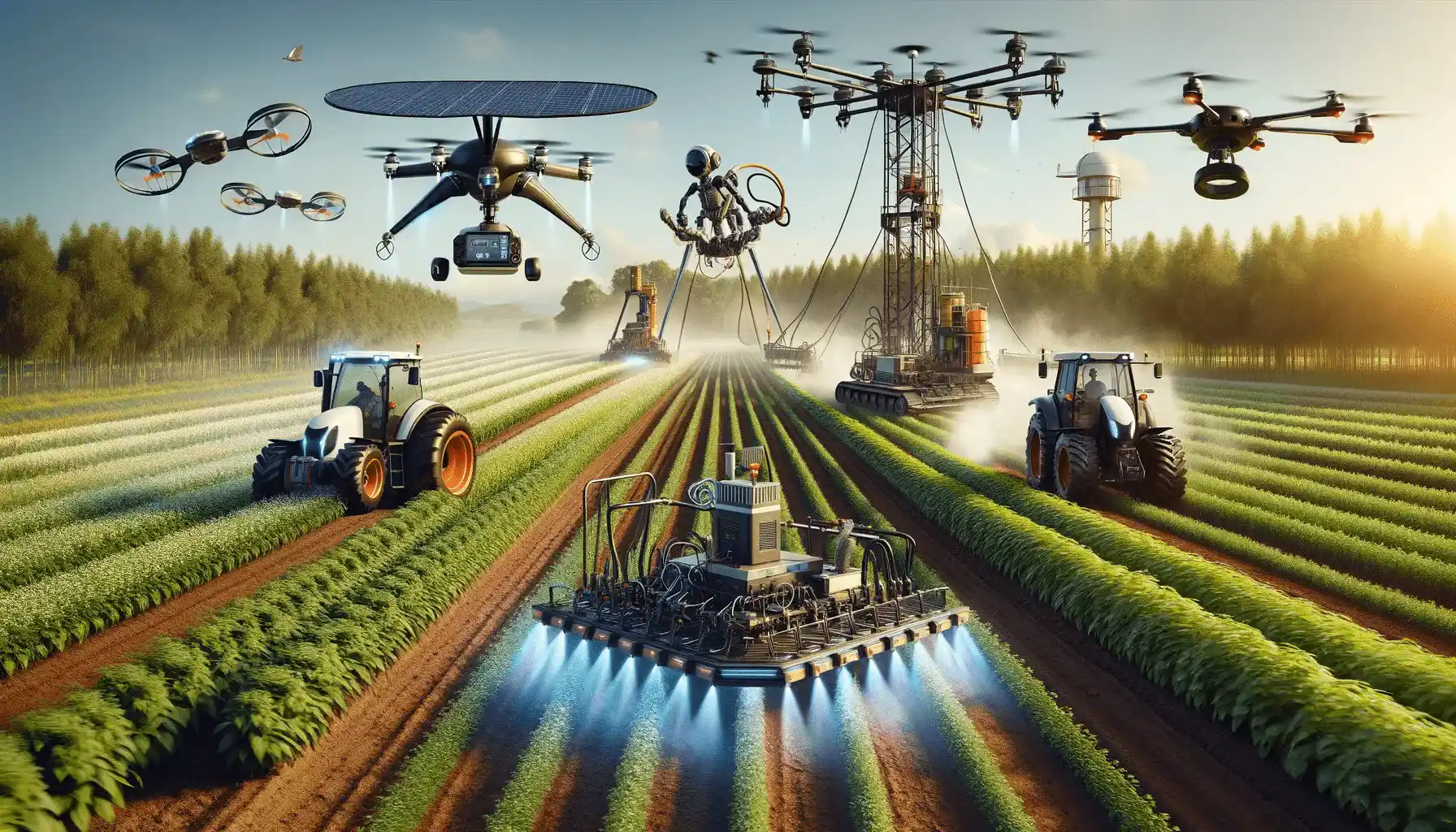Table of Contents
In the realm of agriculture, the constant evolution of technology is reshaping farming methodologies, particularly in combatting weeds and lessening dependency on herbicides. Farming Technology spearheads this transformation, offering innovative solutions to age-old challenges. Weeds, notorious for depleting resources and hindering yields, necessitate proactive management. However, traditional reliance on herbicides poses environmental risks and fosters herbicide-resistant weed strains.
In response, the agricultural sector has embraced Farming Technology to revolutionize weed control strategies. This includes precision weed detection systems, robotic weeders, integrated weed management approaches, precision herbicide application techniques, and the incorporation of cover crops and mulching.

By harnessing the power of technology, farmers can mitigate weed-related impediments while fostering sustainable agricultural practices. The integration of Farming Technology not only enhances efficiency but also minimizes environmental impact, promoting a healthier balance between agricultural productivity and ecological preservation.
5 Farming Technology
1. Precision Weed Detection Systems
Traditional weed detection methods in agriculture typically involve manual visual inspection, a process that is both time-consuming and subjective. However, with the emergence of advanced Farming Technology, such as precision weed detection systems, this landscape is rapidly changing. These cutting-edge systems leverage a combination of sophisticated sensors, high-resolution cameras, and intricate machine-learning algorithms to accurately identify and map weeds in real time.
Unlike human observation, these technologies offer unprecedented accuracy and efficiency, enabling farmers to precisely pinpoint weed infestations within their fields. By distinguishing between crops and weeds with remarkable precision, Farming Technology empowers farmers to deploy targeted interventions, such as localized herbicide applications or mechanical weed removal.
This targeted approach not only minimizes herbicide usage, reducing associated costs and environmental impact but also mitigates crop damage caused by weed competition. In essence, Farming Technology revolutionizes weed management by providing farmers with actionable insights and tools to enhance productivity and sustainability in modern agriculture.
2. Robotic Weeders
Robotic weeders epitomize the transformative potential of Farming Technology, providing farmers with a game-changing tool for weed management. These autonomous marvels are equipped with cutting-edge precision tools, including mechanical arms or lasers, enabling them to meticulously target and remove weeds while safeguarding crop integrity.
By harnessing Farming Technology in the form of robotic weeders, farmers can revolutionize their approach to weed control. Not only do these systems offer an environmentally friendly alternative to herbicides, but they also operate autonomously, significantly reducing labor requirements and enhancing overall farm efficiency. With Farming Technology at their disposal, farmers can achieve unparalleled precision and effectiveness in weed management, leading to improved crop yields and sustainability in agricultural practices.
3. Integrated Weed Management Systems

Farming technology is pivotal in the implementation of Integrated Weed Management (IWM) systems, which amalgamate diverse weed control methods for sustainable management. Through the integration and coordination facilitated by farming technology, IWM systems harmonize cultural, mechanical, biological, and chemical strategies.
These technologies enable precision in the application of different weed control practices, optimizing their effectiveness while minimizing herbicide usage. By adopting a holistic approach, farmers can leverage farming technology to not only suppress weed populations but also safeguard crop health and soil vitality.
From precision weed detection systems guiding targeted interventions to robotic weeders executing mechanical weed removal, farming technology enhances the efficiency and efficacy of IWM systems. This synergy between technology and integrated approaches fosters sustainable weed management practices, ensuring long-term weed suppression and promoting soil health within agricultural ecosystems.
4. Precision Herbicide Application
Farming technology has revolutionized herbicide application, addressing longstanding concerns of overuse and environmental impact. Through precision herbicide application technologies, such as GPS guidance and variable rate technology, farmers can target weeds with unparalleled accuracy. These systems ensure that herbicides are delivered precisely where needed, minimizing drift and off-target effects that pose risks to non-target areas and ecosystems.
By integrating nozzle control mechanisms, farmers can further enhance precision, reducing wastage and maximizing efficiency. This approach not only optimizes weed control but also mitigates environmental damage and the development of herbicide-resistant weed populations. Farming technology empowers farmers to make informed decisions, utilizing advanced tools to achieve effective weed management while minimizing the ecological footprint of herbicide application practices.
5. Cover Crops and Mulching
Farming technology enhances the implementation of cover crops and mulching, pivotal practices for sustainable weed management. With precision planting tools, farmers can optimize the establishment of cover crops, ensuring maximum weed suppression and soil enrichment. Moreover, advanced monitoring systems allow for real-time assessment of cover crop performance, enabling adjustments as needed. In mulching, farming technology aids in the efficient application of organic materials, ensuring uniform coverage and weed suppression.
Furthermore, technology facilitates the monitoring of mulch decomposition rates, guiding farmers in timely replenishment. By integrating cover crops and mulching into their farming systems using farming technology, farmers can effectively reduce weed pressure and minimize herbicide reliance. This synergistic approach not only promotes sustainable weed management but also enhances soil health and fertility, contributing to the long-term viability of agricultural practices.
Case Studies
Blue River Technology, now under John Deere, revolutionized weed management with their Farming Technology, See & Spray system. By employing computer vision and machine learning, it detects weeds in real time, allowing precise herbicide application. This targeted approach slashes herbicide usage by up to 90%, a substantial improvement over conventional blanket spraying methods.
Farming Technology exemplified by ecoRobotix, a Swiss company, pioneers an autonomous solar-powered weeding robot. This innovative solution employs precision targeting with a micro-spray, drastically cutting herbicide use. By accurately identifying and eliminating weeds, it promotes sustainable farming practices, aligning with the industry’s push for environmentally friendly solutions.

FarmWise employs cutting-edge Farming Technology, integrating artificial intelligence and robotics to create autonomous weeding machines. These advanced machines accurately detect and eliminate weeds using mechanical tools, minimizing herbicide application and reducing labor expenses for farmers. By leveraging Farming Technology, FarmWise revolutionizes weed management practices, offering sustainable solutions that enhance productivity and promote environmentally friendly farming methods.
AGCO Corporation’s Fendt IDEAL combine harvester integrates cutting-edge Farming Technology with its WeedIt system. This innovative system employs sensors to detect weeds as the harvester operates in the field. Upon detection, it precisely applies herbicides only where necessary, minimizing overall herbicide usage while ensuring optimal crop yields. By combining harvesting and weed management processes, this technology streamlines operations and promotes sustainable agriculture practices.
At the University of California, Davis, the “Project Sweet Spot” embodies the pinnacle of Farming Technology. By integrating GPS-guided tractors, thermal cameras, and cutting-edge computer vision algorithms, this initiative revolutionizes weed management in tomato fields. Through precise identification and targeted treatment of weeds, Farming Technology significantly reduces herbicide usage while enhancing crop productivity and sustainability.
Conclusion
Farming Technology is transforming weed management, providing farmers with cutting-edge solutions to decrease herbicide reliance and foster sustainable agriculture. With advancements like precision weed detection systems, farmers can accurately identify and target weeds, minimizing herbicide usage while maximizing crop health. Robotic weeders offer automated precision, selectively removing weeds without harming crops, reducing labor and environmental impact.
Integrated Weed Management combines various strategies, from cultural to chemical, optimizing weed control while preserving soil health. By embracing these technologies and holistic practices, farmers can combat weeds effectively, ensuring high yields while safeguarding the environment. As Farming Technology continues to evolve, the potential for sustainable weed management in agriculture is limitless, promising a brighter, more resilient future for farming communities and ecosystems alike.